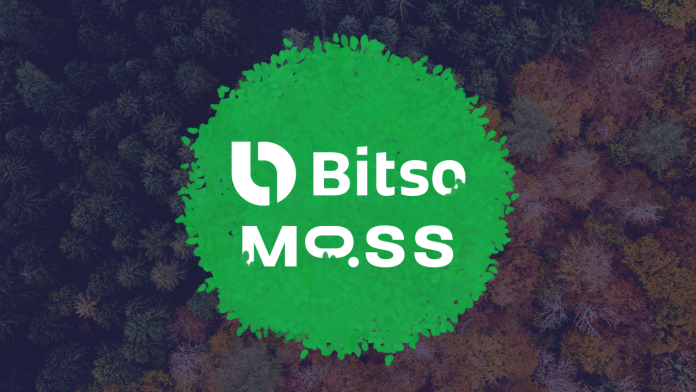tl;dr Summary: Bitso, a crypto exchange popular in Latin America, partnered with MOSS to offset the carbon footprint left by Bitcoin transactions. This initiative is to preserve the environment, which Bitcoin has been heavily accused of harming. MOSS is the largest trader of carbon credits in Brazil, aiming to make carbon credits available for everyone worldwide.
Mainstream media have often bashed cryptocurrencies because of their energy usage and the burden on the environment. However, proof of work (PoW)—the mechanism that maintains the blockchain—also maintains blockchains’ trustless nature. PoW requires a high energy input to run its systems. In the present world, where global warming and climate change are significant concerns, can we use the limited resources we have to maintain this ledger? Is there a better alternative to maximize the potential of this innovative technology? People have been trying to answer this question since the beginning of Bitcoin:
In the traditional industrial base, a company’s environmental impact is significant, and regulatory measures are employed to slow and stop carbon emissions. The Environmental Social and Governance (ESG) framework is a method to evaluate a company’s approach towards these aspects for investors. Investors also consider ESG while investing in cryptocurrencies. The environmental factor is what troubles investors the most. This is why Tesla stopped accepting Bitcoin as a payment method, which led to a significant crash in crypto markets in May 2021. Such events destroy interest and development in the crypto space.
Various solutions have been proposed to lessen the environmental impact of cryptocurrencies. Proof of stake cryptocurrencies has been of greater interest to investors because of their low carbon footprint. Cardano is one of the first to go carbon negative by planting trees in the ‘Cardano forest.’
Another approach to the problem was taken by Bitso, a crypto exchange popular in Latin America, which partnered with MOSS, a carbon credit issuer. MOSS aims to make carbon credits available to the public for purchase to offset the carbon footprint left by transactions on the blockchain. Bitso calculated energy consumption by Bitcoin to be 29.4kg of CO2 emissions, equivalent to 0.0294 MCO2 tokens. It will buy these tokens from MOSS, and the money will be used in environment-preserving projects.
How Do Carbon Credits Work?
A carbon credit is a digital certificate that proves that a company was able to prevent or offset 1 ton of their CO2 emissions in a particular year. This can be done by planting trees, using renewable energy, and using eco-friendly chemicals. Carbon credits are digital certificates that are verified and audited by reputable international organizations. Suppose a company wants to do something that releases CO2. In order to do so without receiving penalties, the company must have carbon credits to ‘spend.’
For a company to get carbon credits, it must indulge in environmentally friendly activities. But, in reality, the environment is inevitably affected by the use of fossil fuels because of the inefficiencies of using environmentally friendly methods. About 80% of the global energy consumption is from fossil fuels. Now, we know fossil fuels are disastrous for the environment. The issuance of carbon credits is the process by which each ton of carbon an industry emits is priced, making companies accountable for their emissions.
Bitcoin’s Carbon Footprint
According to research by Cambridge University, Bitcoin consumes 121.36 terawatt-hours (TWh) of energy. It is ranked higher in energy consumption than Argentina or the Netherlands. This energy goes towards maintaining the decentralized ledger where transactions are recorded. In Bitcoin’s early days, personal computer CPUs were used to mine bitcoin. As the Bitcoin network expanded and more power was needed, miners turned to the use of GPUs, machines powerful enough to support intense gaming, and ASICS, which were built specifically for Bitcoin mining. The involvement of large corporations to profit from the network further made it energy-intensive. Large mining houses were built, and energy was consumed at a large scale. Using environmentally-unfriendly energy, such as that created by traditional power plants that use oil or coal, is the approach used by most miners. Better techniques must be explored.
The Infrastructure Around MOSS
MOSS is responsible for issuing carbon credits in $MCO2 tokens. MCO2 tokens are tokenized forms of the carbon credits MOSS has purchased. These carbon credits represent the trees planted in the Amazon rainforest. So, you might buy an MCO2 token to offset carbon emissions created by your energy use. This token has an unlimited supply that increases or decreases based on the demand for carbon credits. This token does not stand for any governance in MOSS, nor is it an asset of the company. It is just a tokenized version of a carbon credit that signifies ownership on the blockchain.
With carbon credits on the blockchain, anyone can buy them and reduce their environmental impact. MOSS aims to democratize carbon credits so that each individual has access.
Conclusion
Financial innovation is necessary, and cryptocurrencies provide a gateway toward progress. But to make them scalable and efficient, their environmental impact cannot be ignored. Also, for industries to adopt cryptocurrency, they must comply with the existing laws and regulations not just regarding financial regulations but also ESG regulations. Bitso partnering with MOSS is a step in the right direction and aims to remove the concerns around the energy usage of Bitcoin.





